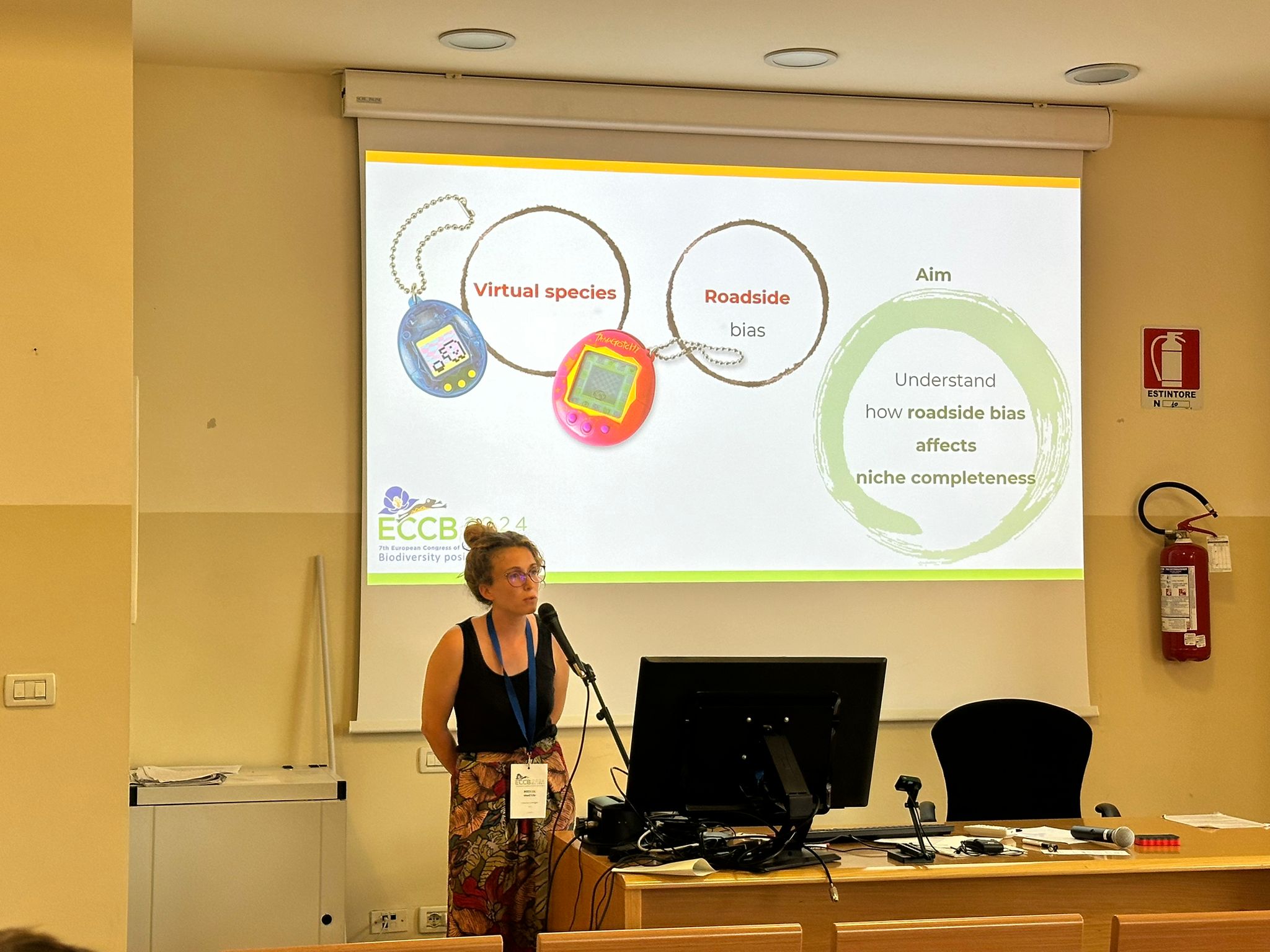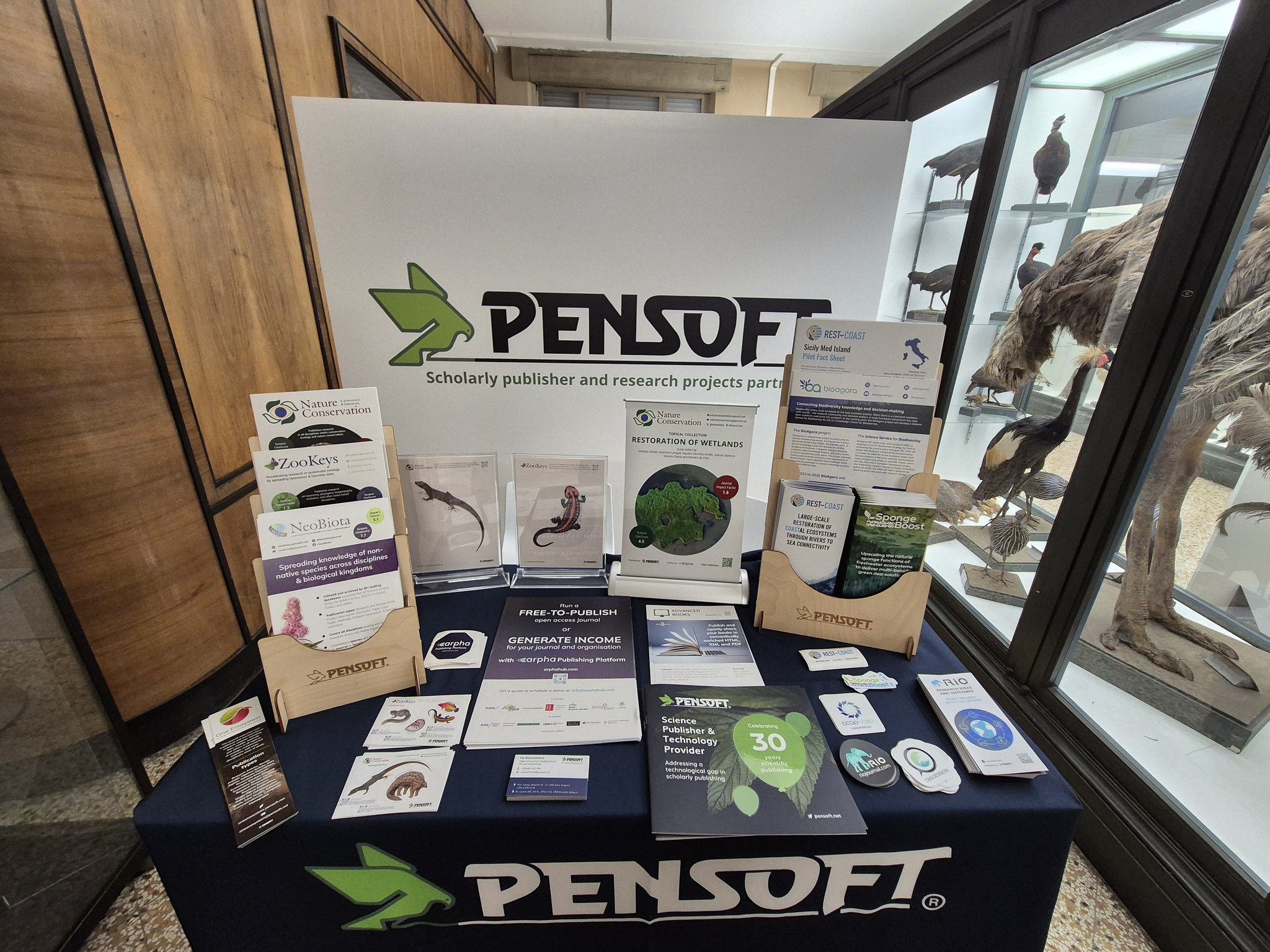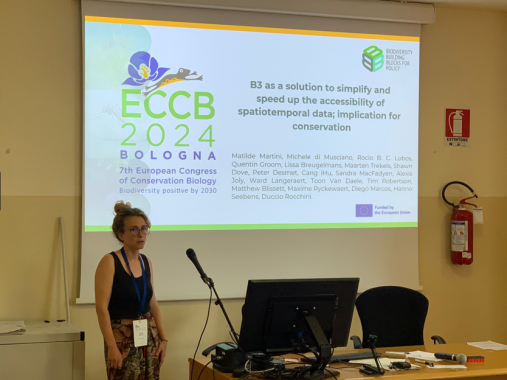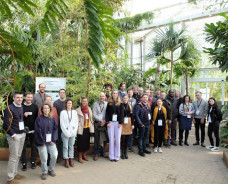The 7th European Congress of Conservation Biology (ECCB) recently took place in Bologna, bringing together researchers, policymakers, and conservation practitioners from across Europe. This year's theme, "Biodiversity Positive by 2030", underscored the need for collaborative efforts and innovative solutions to protect Europe's biodiversity.
Matilde Martini from the University of Bologna (UNIBO) delivered a presentation at the conference, introducing B-Cubed as a solution to simplify and speed up the accessibility of spatiotemporal data and its implication for conservation.
 Matilde presenting at the ECCB
Matilde presenting at the ECCB
Matilde explained that B-Cubed was initiated to make biodiversity monitoring data more accessible, reliable, and useful, thereby enhancing the efficiency of conservation-related decision-making. Despite extensive data collection efforts over the years, many datasets remain incomplete in terms of quality and quantity. To address these gaps, the project employs virtual species and simulation techniques, thus helping researchers understand how spatial uncertainty can affect ecological niche modeling and the conservation needs of real species. Through this methodology, B-Cubed aims to improve data quality and enhance conservation planning.

B-Cubed materials were also available for all attendees at the stand of Pensoft - the communication and dissemination partner of B-Cubed.
The ECCB, organised by the Europe Section of the Society for Conservation Biology (SCB), serves as a key platform for exchanging knowledge on conservation science, practice, and policy. This year's congress provided a forum for discussing recent advancements and ongoing challenges in biodiversity conservation. By featuring projects like B-Cubed, the ECCB highlights the importance of innovative approaches to conservation. Participants left the congress with a renewed commitment to working together towards achieving a biodiversity-positive world by 2030.



